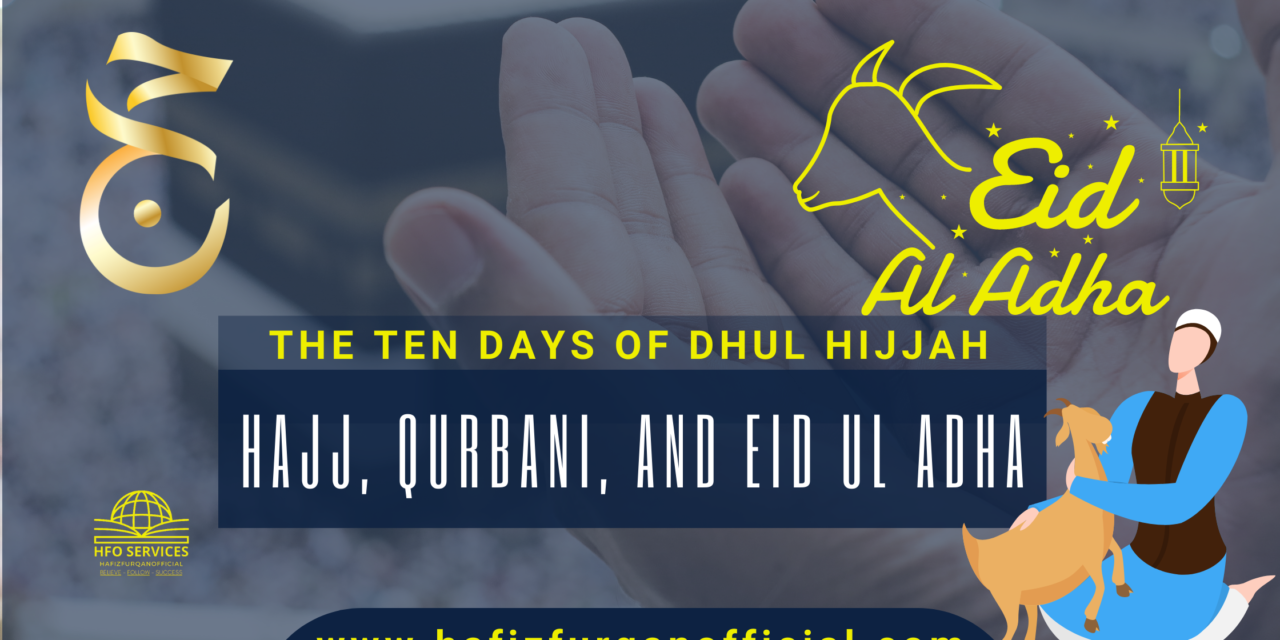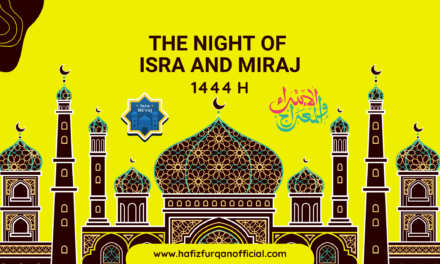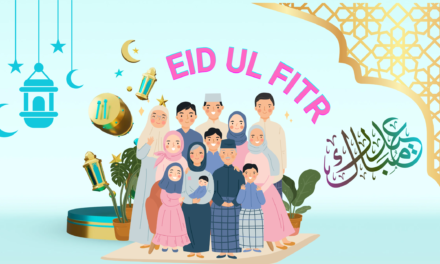The Importance of the Ten Days of Dhul Hijjah in Islam: Hajj, Qurbani, and Eid ul Adha
Introduction:
The Islamic calendar is filled with special occasions, and one of the most significant periods is the ten days of Dhul Hijjah. These days, which mark the final month of the Islamic lunar calendar, hold immense importance for Muslims worldwide. They provide a precious opportunity to engage in acts of worship, seek closeness to Allah, and celebrate the sacred rituals of Hajj, Qurbani, and Eid ul Adha. This article explores the significance of these ten days and the various practices associated with them.
-
Understanding the Ten Days of Dhul Hijjah:
The ten days of Dhul Hijjah are considered the most blessed time of the year for Muslims. They offer a chance to earn numerous spiritual rewards and blessings. These days are historically and religiously significant, as they include the important pilgrimage of Hajj. It is a unique period where Muslims are encouraged to increase their acts of devotion, seek forgiveness, and perform good deeds.
-
The Hajj Pilgrimage:
Hajj is a journey to the holy city of Mecca, which holds great significance in Islam. It is one of the Five Pillars of Islam and a mandatory religious duty for those who are physically and financially able. During the ten days of Dhul Hijjah, Muslims from all over the world gather in Mecca to perform specific rituals. These rituals include circumambulating the Kaaba, running between the hills of Safa and Marwa, and standing in Arafat. Hajj is a time of spiritual reflection, unity, and a reminder of the equality of all believers.
-
The Practice of Qurbani:
Qurbani, or animal sacrifice, is an integral part of the ten days of Dhul Hijjah. It commemorates the obedience and devotion of Prophet Ibrahim (Abraham) to Allah. Muslims around the world sacrifice animals, such as sheep, goats, cows, and camels following specific guidelines. The meat is then distributed among family, friends, and those in need, emphasizing the importance of sharing and caring for others in the community.
-
Celebrating Eid ul Adha:
The ten days of Dhul Hijjah culminate in the joyous celebration of Eid ul Adha, also known as the Festival of Sacrifice. Muslims worldwide gather to perform special congregational prayer and engage in acts of worship and celebration. This festival commemorates Prophet Ibrahim’s willingness to sacrifice his son, Ismail (Ishmael), in obedience to Allah’s command. As a test of his faith, Allah replaced Ismail with a ram for sacrifice. It is a time for families and friends to come together, exchange gifts, and share meals. The celebration serves as a reminder of the importance of sacrifice, obedience, and gratitude to Allah.
Conclusion:
The ten days of Dhul Hijjah hold tremendous significance in Islam, offering a unique opportunity for Muslims to engage in acts of worship and seek closeness to Allah. Through the rituals of Hajj, the practice of Qurbani, and the celebration of Eid ul Adha, believers deepen their faith, reflect on the teachings of Prophet Ibrahim, and strengthen the bonds of community and unity. These sacred days serve as a reminder of the importance of devotion, sacrifice, and gratitude in the lives of Muslims, fostering a sense of spiritual fulfillment and connection with Allah and fellow believers.
Quiz:
1) What is the significance of the 10 days of Dhul Hijjah?
a) They mark the end of the Islamic lunar calendar.
b) They commemorate the Prophet’s migration from Mecca to Medina.
c) They are associated with important Islamic rituals and celebrations.
d) They hold no particular significance.
2) Which pilgrimage takes place during the 10 days of Dhul Hijjah?
a) Umrah
b) Hajj
c) Ziyarah
d) Jihad
What is the act of Qurbani?
a) Offering prayers during the 10 days of Dhul Hijjah.
b) Fasting from dawn till dusk.
c) Giving charity to the poor and needy.
d) Sacrificing an animal as an act of obedience and gratitude to Allah.
What does Eidul Adha commemorate?
a) The birth of the Prophet Muhammad.
b) The night journey of the Prophet Muhammad.
c) The unwavering faith and obedience of Prophet Ibrahim.
d) The revelation of the Qur’an.
Answers:
1) c) They are associated with important Islamic rituals and celebrations.
2) b) Hajj
3) d) Sacrificing an animal as an act of obedience and gratitude to Allah.
4) c) The unwavering faith and obedience of Prophet Ibrahim.




![The Night of Power [Lailatul Qadr]: The Most Sacred Night in Islam](https://hafizfurqanofficial.com/wp-content/uploads/2023/04/Copy-of-Syed-Alam-Blog-Banner-1-440x264.png)

